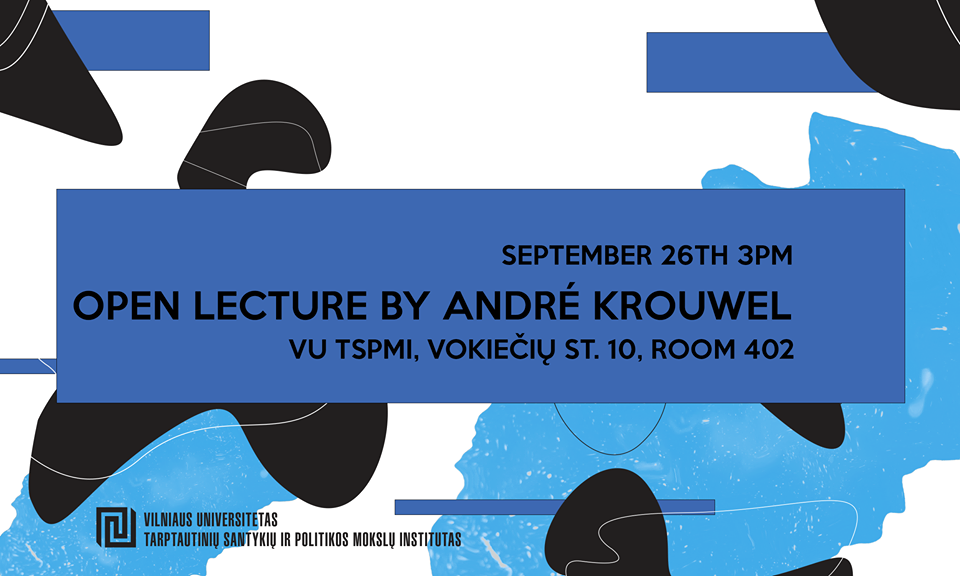IIRPS VU invites you to a public lecture by André Krouwel. The event will take place on the 26th of September at 3:00 p.m. in room 402.
As witnessed by recent elections in Sweden, France and several other European democracies, Anti-Immigrant Populist Parties have become serious challengers to the mainstream centrist political parties. It is often argued that the success of these parties results from the failure of established parties to absorb new issues or represent value changes that have occurred, yet recent studies show that these populist challengers appeal is not solely based on “new” issues’, but that newcomers actually use the core issues of traditional parties to appeal to their electorates. In addition, these newcomers do not only enter the party political landscape at the fringes but in the core ideological territories of established parties. Successful new parties do not “purify” or “cleanse” the programmatic positions of established parties, but directly “challenge” them on their own ideological and electoral territory. Many “newcomers” actually emerged directly from established parties, particularly from the liberal party family, suggesting strongly that there is an illiberal streak to liberalism, or at least that ‘liberals’ are split internally between traditional liberals that favour open border, free trade and internationalism, versus illiberal that favour economic protection of national economies, oppose European integration and free trade and want to curb immigration. Moreover, there is very little evidence that party collusion and centripetal competition of mainstream parties is a necessary condition for the emergence of anti-immigrant party emergence and success, as anti-immigrant parties emerge in situations of both polarisation and convergence, in times of mainstream collusion and strife. New parties directly challenge established parties on their core beliefs and in the heartland of their electoral support and therefore represent a significant development within European democracies where “old” forms of contestation and elite cooperation are being structurally transformed.
The proliferation of populist parties and their electoral success particularly represents a threat to mainstream parties of social democratic, Christian democratic, liberal, and conservative parties. Each of these mainstream party families is affected differently, yet they all face at least three major challenges. This lecture will discuss this “triple challenge” for the mainstream, while it will also highlight the weakness of the populist appeal.
André Krouwel teaches comparative political science and communication science at the Vrije Universiteit Amsterdam and is the founder of Kieskompas (Election Compass) – a developer of online Vote Advice Applications in more than 40 countries, with which data is collected on party positions and voter opinions. André is a strong advocate of social engagement of scientists and finding ways to create a maximum social impact of scientific knowledge. His research focuses on public opinion and politically relevant sentiments, voting behaviour, political parties and social movements. He has published books and articles on elections, voting behaviour, parliamentary and presidential elections, party competition, populism and Euroscepticism. His most recent research has investigated the impact of information on political attitudes and opinions, (negative) political emotions and belief in conspiracy theories.









